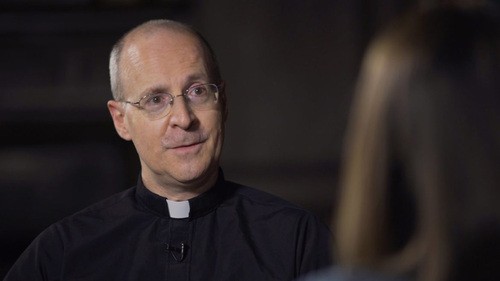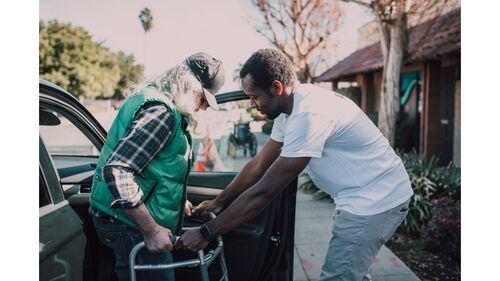Is My Love Conditional?
A few weeks ago vice president JD Vance made some headlines when talking about loving others. As reported on the news organization VOX: “In a Fox News segment on immigration, Vance laid out what he called “a very Christian concept”: “You love your family and then you love your neighbor, and then you love your community, and then you love your fellow citizens in your own country, and then after that, you can focus [on] and prioritize the rest of the world. A lot of the far left has completely inverted that.”
This sent the news world in a tizzy as everyone had their opinions and a lot of them were not favorable. To the world that is tolerant and accepting to any and everything, this concept from Vance cut people to the heart. British politician Rory Stewart went to Twitter (now called X) and said, “A bizarre take on John 15:12-13 - less Christian and more pagan tribal. We should start worrying when politicians become theologians, assume to speak for Jesus, and tell us in which order to love…” Sigal Samuel from VOX said in an article, “A big part of what made Jesus’s message so radical was that he did not advocate putting biological family or tribe first; instead, he imagined a new family of believers, which anyone could join. When Jesus was told that his mother and brothers were waiting for him outside, he famously said, “Who is my mother, and who are my brothers? … Whoever does the will of my Father in heaven is my brother and sister and mother.”

But it didn't stop there. Pastors, theologians, authors and priests had their objections as well. Theologian Joash Thomas said, “I am a theologian trained at one of America’s top conservative evangelical theological seminaries. This is not a Christian concept; it’s a Western individualistic one.” Then there was the Jesuit priest James Martin who chimed in saying, “Actually no, This misses the point of Jesus’ Parable of the Good Samaritan (Lk 10: 25-37). After Jesus tells a lawyer that you should ‘love your neighbor as yourself,’ the lawyer asks him, ‘And who is my neighbor? “In response, Jesus tells the story of a Jewish man who has been beaten by robbers and is lying by the side of the road. The man is helped not by those closest to him (a ‘priest’ and a ‘Levite’), but rather by a Samaritan. At the time, Jews and Samaritans would have considered one another enemies. So Jesus’ fundamental message is that everyone is your neighbor, and that it is not about helping just your family or those closest to you.”

Wow! Who knew that a vice president would spark such a theological debate? What vice president Vance is referring to is a classic Christian teaching called ordo amoris. This is a Latin phrase that means “order of love”. This is a biblical principle that teaches us there is an order to how we love. This has been taught for centuries from Agustine all the way to C.S. Lewis. The word “order” may confuse the issue. Maybe a better phrase would be “responsible”. In who and how we love, we have greater responsibilities to some over others. There is a hierarchy if you will. And that is why the world doesn’t like it. It is talk like this that would shake the core beliefs of our progressive society. Nowadays we flippantly throw out the phrase “love your neighbor” as if there were no qualifications. No boundaries or parameters. Just love…period. We pervert love to the point where it means you have a license to do whatever you want because if you don’t let me, you don't love me. Which is far from being biblical. But this is how our world thinks. That we should do whatever is necessary to prevent anyone from having any hardship and to have them live however they want with no questions asked. Or else…we don’t really love them then. This, however, is not biblical.
We are shown in God’s word that our love is to have varying levels of responsibility and desire. For example we are told by Jesus to love God more than anything else! (see Mark 12:30) Right there sets the tone for us. Our love to God should not be at an equal level to anything else. Our love to Him should be above and beyond all else, or else whatever we are loving as much or more than God is an idol. Then there are other passages to show us that our love to family is a priority: “But if a widow has children or grandchildren, let them first learn to show godliness to their own household and to make some return to their parents, for this is pleasing in the sight of God.”(1 Timothy 5:4) And then a little bit later in the chapter: “But if anyone does not provide for his relatives, and especially for members of his household, he has denied the faith and is worse than an unbeliever.” (1 Timothy 5:8) We see here that there is a clear priority when it comes to our responsibility in loving others.

This is even the case with the people of God. Jesus said that His real family were those that followed Him (Matthew 12:48-50). And that we are to show priority to those that are our spiritual brothers and sisters (Galatians 6:10). So if we have an extended family obligation or a church obligation, we should not be automatically running to the family obligation. Love for church and our spiritual family is to have a priority in our lives. Jesus even said that following Him may lead to turning your back to your blood family (Luke 14:25-26).
Also, the responsibilities may change over the course of my life. I love my parents. And it is a biblical command to honor them. But the priority to my parents will change over the course of my life. Same to my children. The priority to my children will change as they become adults. Yet the world does not want to make these distinctions. It wants to pressure us to love anything and everything equally. And this is why we have a society that treats their dogs better than they treat their own kids!
Now I know some will be thinking about passages like in Matthew where we are told to love our enemies (Matthew 5:43-44). Or what about what Jesus taught us with the parable of the good Samaritan?! (Luke 10:25-37) Am I changing the teaching of the parable to walk past the guy on the side of the road because he is not a family member? No not at all! We are to love our neighbor as yourself. What is getting many people off track is that they think by loving someone more, that automatically means we love someone else less. That is not true at all. We are to love our neighbor and help someone in need if the need arises. But it is also true that I am also to love my wife and children more than my neighbor. That my responsibility, obligations and commitment are more important than my neighbor. But that doesn’t automatically equate to me hating my neighbor! I am to start with God, then go to my wife and family, then to my church and beyond. My love doesn’t stop at a certain point, but it does have a priority that starts with God.

As theologian Andrew Walker said, “The problem arises when we either neglect those closest to us in pursuit of distant acts of charity or use familial duty as an excuse to ignore the suffering of others. Neither extreme is Biblical. Instead, the model of Christ is one of sacrificial love that begins in the home and extends outward. Christians should reject any false dichotomy between caring for one’s own and loving the broader world. We must hold both truths: that we have a special obligation to those closest to us and that we are called to extend mercy beyond those immediate relationships when the opportunity arises.” This is because this reflects God’s love toward us. God is love, but that doesn’t mean it is the same love to all. His love to His children is different from His love to those that are unrepentant. Are the unsaved adopted? Do the lost have an inheritance in heaven? Is Jesus preparing rooms in eternity for those that reject Him? Do those that don’t believe in Him have the blessing and gift of the Holy Spirit in their hearts? Obviously not. God shows an ordo amoris to His love to us as well. God extends grace to all, to a certain extent. He allows there to be rain for the just and the unjust. Believers and nonbelievers are blessed to breathe and live. But He only forgives those who repent. He only purifies those who turn to Him in faith. Now the world would have problems with this also with their liberal views of God. This is why people think everyone is a child of God. That His love means He’ll like you no matter what you do. And that everyone is going to heaven no matter what. But that is not biblical. That is not how God shows His love. And neither should we. As author Samuel Sey wrote, “The emphasis of the hierarchy of love isn’t that we should love some people less than others. The emphasis is that we should love some people more than others.”
Posted in Christian LIfe, Christian Worldview, Theology
Posted in love, love for your neighbor, loving your neighbor, politics
Posted in love, love for your neighbor, loving your neighbor, politics
Recent
Archive
2025
February
April
July
September
October
November
2024
February
April
September
2023
September
October
December
2022
January
February
March
August
September
October
2021
April
August
September
2020
February
No Comments